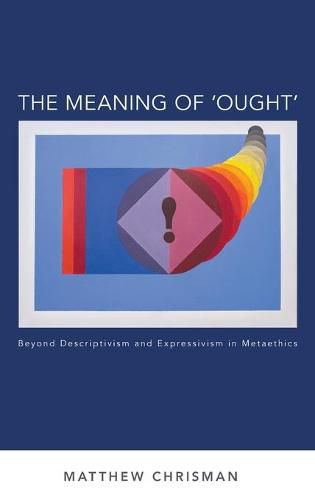Readings Newsletter
Become a Readings Member to make your shopping experience even easier.
Sign in or sign up for free!
You’re not far away from qualifying for FREE standard shipping within Australia
You’ve qualified for FREE standard shipping within Australia
The cart is loading…






The word ‘ought’ is one of the core normative terms, but it is also a modal word. In this book Matthew Chrisman develops a careful account of the semantics of ‘ought’ as a modal operator, and uses this to motivate a novel inferentialist account of why ought-sentences have the meaning that they have. This is a metanormative account that agrees with traditional descriptivist theories in metaethics that specifying the truth-conditions of normative sentences is a central part of the explanation of their meaning. But Chrisman argues that this leaves important metasemantic questions about what it is in virtue of which ought-sentences have the meanings that they have unanswered. His appeal to inferentialism aims to provide a viable anti-descriptivist but also anti-expressivist answer to these questions. This is a remarkably bold and interesting book. Chrisman challenges nothing less than the entire conceptual framework within which most previous metaethics (and indeed, much other contemporary philosophy) has been done, and advances a very ambitious rethinking of the theoretical space. It’s not only ambitious, but also extremely imaginative and smart, and Chrisman’s scholarship is at a rare level, as he has assimilated a literature that is unusually broad both in terms of field and historical scope. -Stephen Finlay, Professor of Philosophy, University of Southern California
$9.00 standard shipping within Australia
FREE standard shipping within Australia for orders over $100.00
Express & International shipping calculated at checkout
The word ‘ought’ is one of the core normative terms, but it is also a modal word. In this book Matthew Chrisman develops a careful account of the semantics of ‘ought’ as a modal operator, and uses this to motivate a novel inferentialist account of why ought-sentences have the meaning that they have. This is a metanormative account that agrees with traditional descriptivist theories in metaethics that specifying the truth-conditions of normative sentences is a central part of the explanation of their meaning. But Chrisman argues that this leaves important metasemantic questions about what it is in virtue of which ought-sentences have the meanings that they have unanswered. His appeal to inferentialism aims to provide a viable anti-descriptivist but also anti-expressivist answer to these questions. This is a remarkably bold and interesting book. Chrisman challenges nothing less than the entire conceptual framework within which most previous metaethics (and indeed, much other contemporary philosophy) has been done, and advances a very ambitious rethinking of the theoretical space. It’s not only ambitious, but also extremely imaginative and smart, and Chrisman’s scholarship is at a rare level, as he has assimilated a literature that is unusually broad both in terms of field and historical scope. -Stephen Finlay, Professor of Philosophy, University of Southern California